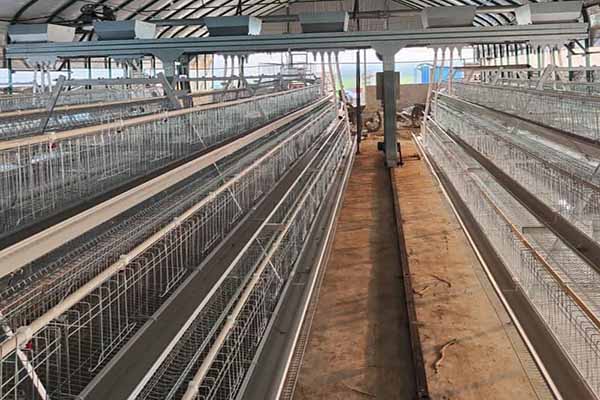Pure Kienyeji Chicken Farming in Kenya: A Comprehensive Guide
Time : 2025-05-13
Hey there, fellow chicken farming enthusiasts! If you’re in Kenya and looking to delve into the world of pure Kienyeji chicken farming, you’ve come to the right place. Kienyeji chickens are a popular breed in Kenya, known for their resilience, adaptability, and, of course, their delicious meat. In this article, we’ll cover everything you need to know about pure Kienyeji chicken farming in Kenya. Let’s get started!
Understanding Pure Kienyeji Chickens
First things first, let’s understand what makes pure Kienyeji chickens so special. These chickens are native to Kenya and are well-known for their ability to thrive in various environments, from arid to semi-arid regions. They are also highly resistant to diseases, making them a favorite among farmers.

One of the key characteristics of pure Kienyeji chickens is their ability to forage for food. They have a great sense of what’s nutritious and are capable of finding their own food, which reduces the need for feed supplementation. This not only makes them more cost-effective but also contributes to the health of the chickens.
Setting Up Your Kienyeji Chicken Farm
Now that you’re familiar with the breed, let’s talk about setting up your farm. Here are some essential steps to get you started:
Location
Choose a location that is accessible to you and your customers. It should be close to a water source and have enough space for the chickens to roam and forage. Remember, Kienyeji chickens are hardy and can adapt to a variety of environments, but they do need some room to move around.

Chicken Coop
Your chicken coop should be well-ventilated and protected from predators. It’s important to have a secure structure that keeps the chickens safe from marauding animals. You can build a simple coop using locally available materials or opt for a pre-fabricated one.
Feeding and Watering
As mentioned earlier, Kienyeji chickens are great foragers, but they still need a balanced diet. You can start by feeding them a mix of maize, millet, and sorghum. supplement their diet with vitamins and minerals to ensure they’re getting all the nutrients they need. Don’t forget to provide fresh water at all times.
Breeding and Management
Breeding pure Kienyeji chickens is a crucial aspect of successful farming. Here are some tips to help you out:

Choose the Right Pair
When selecting breeding pairs, look for healthy chickens with good growth rates and strong legs. Male and female Kienyeji chickens should be of similar age and size to ensure healthy offspring.
Monitor Health Regularly
Regular health checks are essential to identify and treat any diseases early. Keep an eye out for signs of illness, such as changes in appetite, weight loss, or discharge from the eyes or nostrils.
Manage寄生虫
Parasites can be a significant problem for Kienyeji chickens. Regularly deworm the chickens and use appropriate pest control methods to keep them free from parasites.
Marking Your Chickens
It’s important to keep track of your chickens, especially if you plan to sell them. You can use leg bands or wing tags to mark your chickens. This will help you manage your flock and ensure that you can identify each bird easily.
Marketing Your Pure Kienyeji Chickens
Once you have a healthy flock of Kienyeji chickens, it’s time to think about marketing them. Here are some strategies you can use:
Direct Sales
Sell directly to local markets or through farmers’ markets. This allows you to build a loyal customer base and ensures that you get the best price for your chickens.
Online Marketing
Utilize social media and online platforms to reach a wider audience. Create engaging content that showcases your chickens and your farming practices.
Conclusion
Farming pure Kienyeji chickens in Kenya can be a rewarding experience. By following these tips and strategies, you can set up a successful chicken farm and enjoy the benefits of this hardy and delicious breed. Happy farming!











